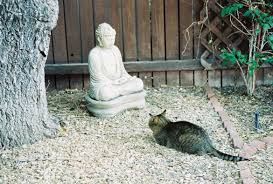 In the Vine of Obstacles: Support for Online Zen Training, the first focus for study practice is Dogen’s “Guidelines for Practicing the Way.” Dogen makes ten points here, starting with the importance of clear intention, practicing for the sake of buddhadharma, and the importance of studying with a “true” teacher.
In the Vine of Obstacles: Support for Online Zen Training, the first focus for study practice is Dogen’s “Guidelines for Practicing the Way.” Dogen makes ten points here, starting with the importance of clear intention, practicing for the sake of buddhadharma, and the importance of studying with a “true” teacher.
Click here for a Wild Fox blog post about following a teacher, practicing yourself, following yourself from a couple years ago.
In the Vine work, several people have gotten “true” teacher caught in their craw while working through this point. Understandably – so I want to address the issue of a “true” teacher here.
Dogen defines “true teacher” like this:
“Regardless of age or experience, a true teacher is simply one who has apprehended the true teaching and attained the authentic teacher’s seal of realization. S/he does not put texts first or understanding first, but her/his capacity is outside any framework and her/his spirit freely penetrates the nodes in bamboo. S/he is not concerned with self-views and does not stagnate in emotional feelings. Thus, practice and understanding are in mutual accord. This is a true master.”
I’m reminded of the surveys that ask people what qualities they expect in a President – brave, clean, reverent, heroic, brilliant, loving, etc.
I think Dogen errs here in suggesting that anybody can be what he describes at all times to all people. Maybe every clause could be qualified with “In a really excellent moment…her/his capacity is outside any framework,” etc.
We’re verbs not nouns. We’re all bozos on the bus.
Because of that, I propose that we toss out the “true” teacher construction from our nontraditional Zen work. After all, the expectation has led to a lot of inflation, projection, and intoxication by both teachers (speaking from experience) and students in our scene today.
In its place, I propose that students aspire to find a “good enough teacher” (following Winnecott, I believe) and that teachers too aspire to be “good enough” or better, barely good enough.
Good enough for what? To collaborate with students in their practice-enlightenment project.
Why “barely?” A Zen teacher buddy (thanks, Dae An) recently sent me this from Norman Fischer:
“…the ‘best’ teachers are often the worst teachers; the more brilliant the teacher, the more exciting, the more enlightened, the worse it is for the student. The student ends up lusting after time with the teacher, hanging on her every word, and forgetting that this is about him or her, the student, not the teacher.”
In my case, I started with Katagiri Roshi when I was 21 and quite naive and angry too. It took several years before I was confident that I was with the right guy. I did put him on a pedestal for a while but fortunately he kept falling off and I finally got that he was a regular person like me. Turns out that it really helped our relationship. He seemed much more at ease with me when I didn’t expect him to be a great man and I found that I could actually learn from him. He may not have been the most enlightened, pure Zen master of the 20th Century.
He was good enough.
And in the Zen tradition we aim at going beyond our teachers. So come hell or high water, I vow to be barely good enough, leaving “just barely good enough” for the next generation.











